Ancestry & Evolution
The desire to understand our origins is primal. By examining our DNA over successive generations through the evolutionary process of inherited characteristics of human and animal populations–as well as from those species from which humans share a common ancestry–we can decipher our individual and collective past and develop medical innovations for the future.
Below is the complete archive of related articles sorted by date.
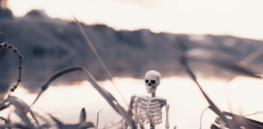
Viewpoint: Existential ethics — Pondering the extinction of the global human population
Why would it be so bad if our species came to an end? It is a question that reveals our ...
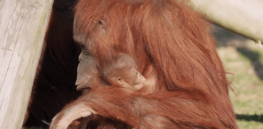
Video: Watch how a breastfeeding mom teaches an orangutan how to nurse
Zoe the orangutan needed help breastfeeding. Her first baby, Taavi, had to be hand-raised after she failed to nurse him and ...

In Darwinian twist, AI could go ‘Terminator’ and gain upper hand over humans. Here’s how.
Artificial intelligence could gain the upper hand over humanity and pose "catastrophic" risks under the Darwinian rules of evolution, a ...
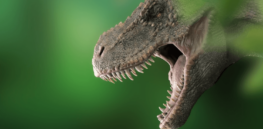
Jurassic Park and other pop-culture depictions got the gaping maw of Tyrannosaurus rex wrong: The dinosaur had lips that covered its long, serrated teeth
The chompers of two-legged carnivorous dinosaurs didn’t protrude outside their jaws, a new study suggests ...

Sweet genes: Why so many people are ‘practically programmed’ to love sugar
The sweetness of sugar is one of life’s great pleasures. People’s love for sweet is so visceral, food companies lure ...
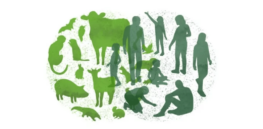
Not out of the woods on COVID threats: Animal reservoirs of SARS-CoV-2 pose unknown risks to humans
The COVID-19 pandemic has been one of the most devastating events in public health in the U.S. over the last ...
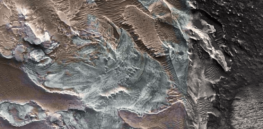
Signs of recently-formed glacier ice found on Mars
Remnants of a modern glacier have been found near Mars' equator, suggesting ice may still exist at shallow depths in ...

Ancient human DNA ethics: ‘Who gives consent for study participants long gone — and who should speak for them today?’
The 2022 Nobel Prize in physiology and medicine has brought fresh attention to paleogenomics, the sequencing of DNA of ancient ...
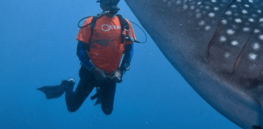
Stretching human life span to 200 years? Implications of bowhead whale study
A major player in the anti-genetic engineering nutritional industry is behind longevity studies on whales, that might lead to the ...
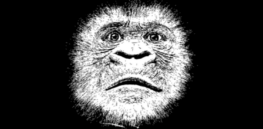
Why do humans like to get high? Apes who spin themselves dizzy might offer clues
Great apes spinning behaviours could provide clues about the role of altered states for the origins of the human mind ...
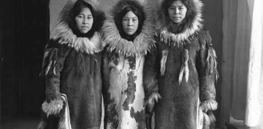
Humans are ill equipped to handle freezing cold — so why do so many of us live in chilly climates?
Humans are a tropical species. We have lived in warm climates for most of our evolutionary history, which might explain ...
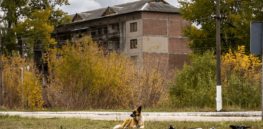
Dogs of Chernobyl: What exposure to chronic, low-level radiation does to a species
Dogs roam the ghost town of Pripyat within the Chernobyl exclusion zone in Ukraine. Scientists have identified genetically distinct populations ...

Why human brains aren’t cut out for modern workplaces
The modern workplace was not designed with the human brain in mind. This disconnect can make it difficult for us ...
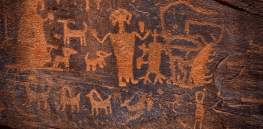
Rethinking humanity’s origin story: Did all modern humans evolve from East Africa?
New evidence is prompting researchers to rethink Homo sapiens’ origin story—and what it means to be human ...
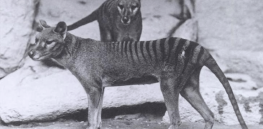
De-extinction: The Second Coming
Ten years ago it burst into mainstream popular life: the possibility of resurrecting extinct species ...
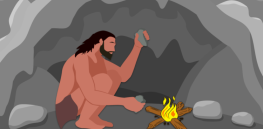
Neanderthals disappeared 40,000 years ago. What were they like?
What were Neanderthals really like—and why did they go extinct? These ancient hominids, who disappeared 40,000 years ago, were once ...

Homo futuris: How climate change shaped early human evolution — and how it might impact the future evolution of our species
Scientists know from the study of tree rings, layers of ice in glaciers, ocean sediments, coral reefs and sedimentary rocks ...
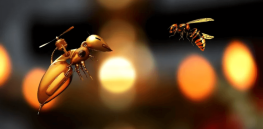
Understanding animal behavior: Researchers use artificial Intelligence (AI) to analyze animal brains
Scientists at the University of Michigan have developed an open-source, user-friendly, artificial intelligence driven software called LabGym that automatizes animal ...
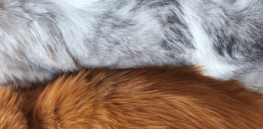
Naked evolution: Why humans don’t have fur
Scientists don't definitively know the reason behind this change from thicker, coarser fur to these light vellus hairs, and they ...

How cousin marriages can wreak genetic havoc on children
The link between cousin marriages and genetic disorders in offspring is a growing problem in several countries ...
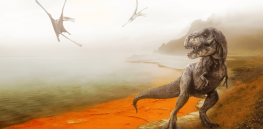
Podcast: Why modern-day animals are so much smaller than dinosaurs
Researchers think they understand how some dinosaurs grew so large. NPR's Eyder Peralta talks with Michael D'Emic, paleontologist at Adelphi ...
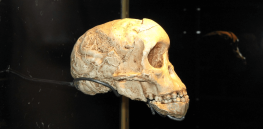
5 traits in modern humans that trace back to our distant ancestry
Many of us are returning to work or school after spending time with relatives over the summer period. Sometimes we ...
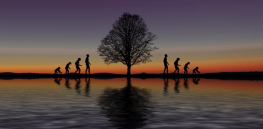
From a ‘chemical soup’ to complex life: Understanding the beginning of evolution of life on Earth
Did evolution occur before life even existed? New research illuminates the ancient processes from which the first life arose on ...

‘Animals are very smart, but not in the same way as us’: Explaining differences between human and animal intelligence
Why aren't animals as smart as humans? ASK A RESEARCHER: "Fire may have made human brains larger," researcher says ...
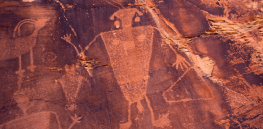
Are society’s biggest conflicts linked to our ‘inherent tribalism’?
Over the past several years, the conflicts we see around us — particularly political ones — are blamed on humanity’s ...
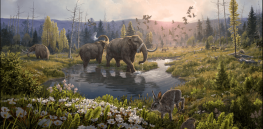
How might we adapt to fast-changing global temperatures? 2-million year old ‘environmental DNA’ offers clues
The reconstruction of a once-living landscape in northern Greenland from 2 million years ago, deduced from bits of DNA bound ...
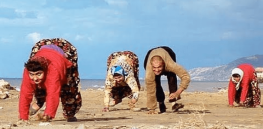
Video: Is there such a thing as ‘backward evolution’? Turkish family that walks on all fours under study by scientists
The Ulas family live in rural southern Turkey. In total, 19 children live with their parents, seven of whom are ...

